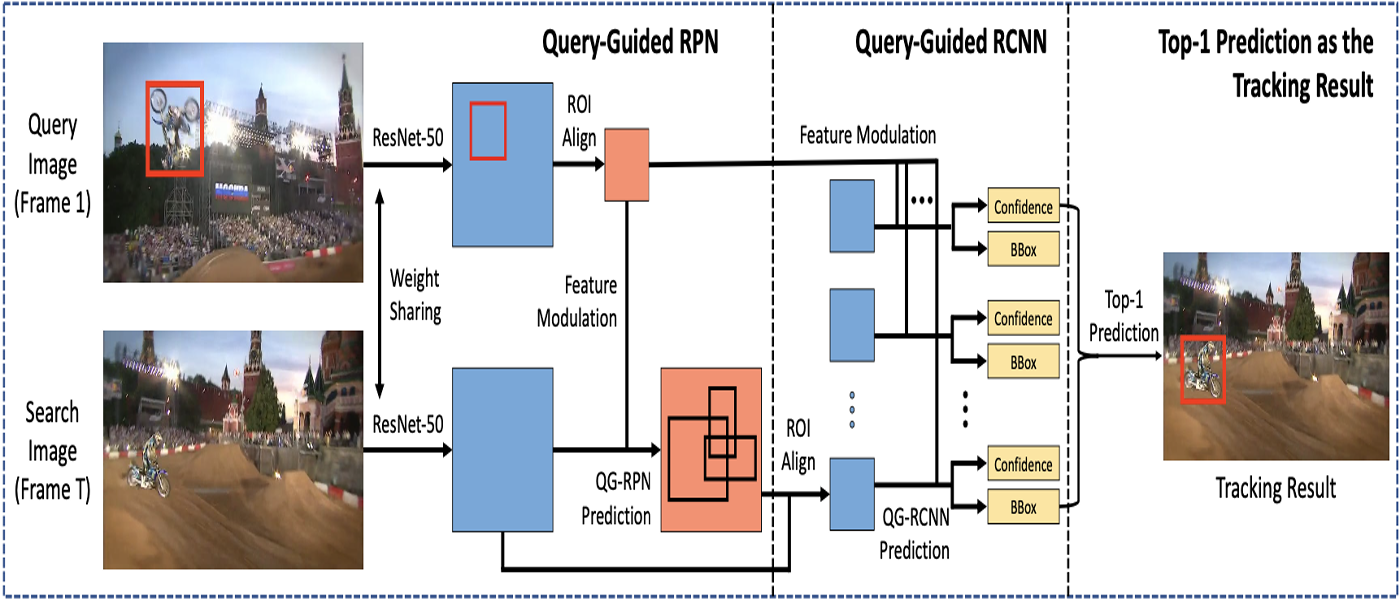GlobalTrack[1] is a pure global tracker for long-term tracking, without temporal consistency assumption making cumulative errors. There are some details of reading and implementing it.
Contents
Paper & Code & note
Paper: GlobalTrack: A Simple and Strong Baseline for Long-term Tracking(AAAI 2020 paper)
Code: Pytorch
Note: GlobalTrack
Paper
Abstract
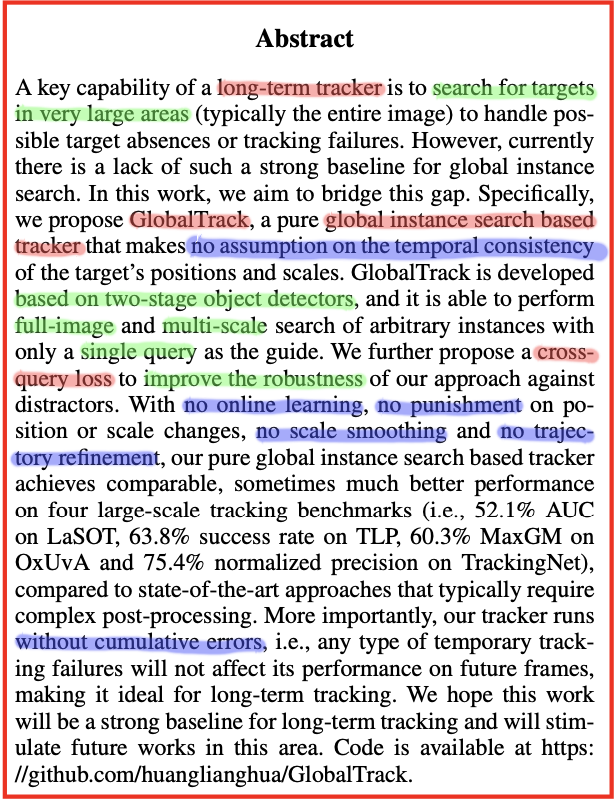
As abstract of the paper, their work mainly proposed a method called GlobalTrack, which is a pure global instance search based tracker that makes no assumption on the temporal consistency.
- It is developed based on two-stage object detector Faster R-CNN, with two submodules
QG-RPNandQG-RCNN.- it is able to perform
full-imageandmulti-scalesearch of arbitrary instances with only a single query as the guide.- They further propose a
cross-queryloss to improve the robustness of this approach against distractors.
Problem Description

It shows the difficults of
long-term trackingand the problem ofexisting trackers.
Problem Solution

It shows the methods for solving long-term tracking problem.
Conceptual Understanding
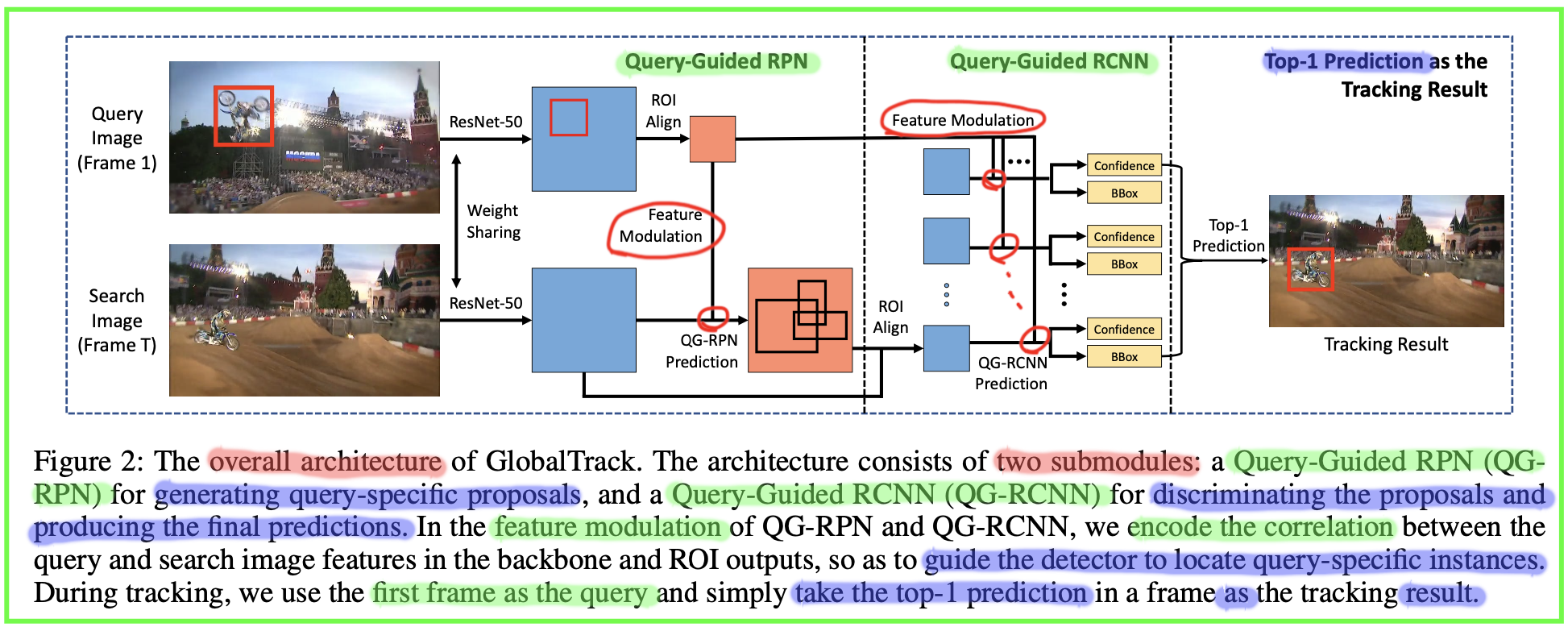
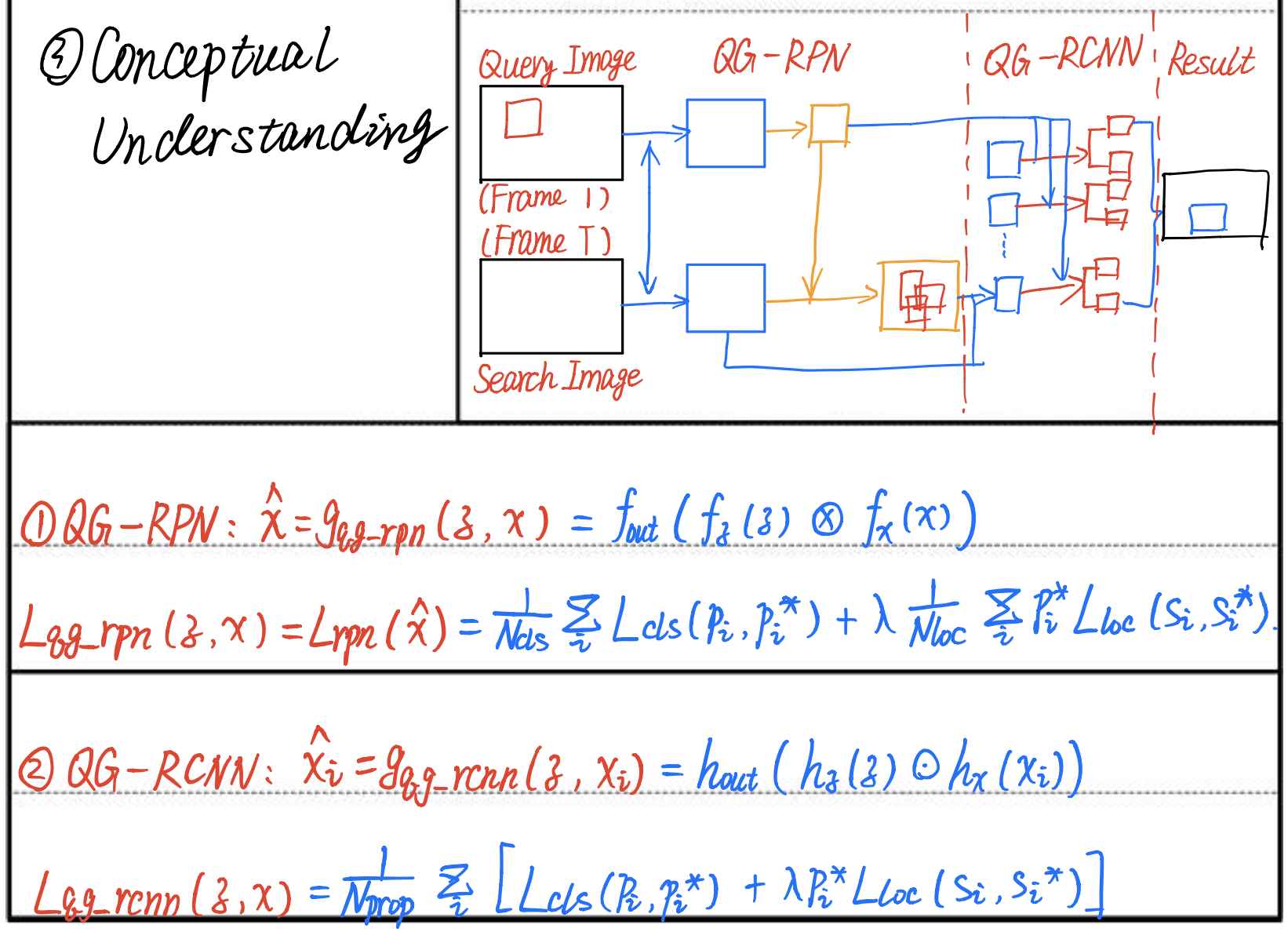
It describes the overall architecture of GlobalTrack with
QG-RPNandQG-RCNN.
Details of implementation
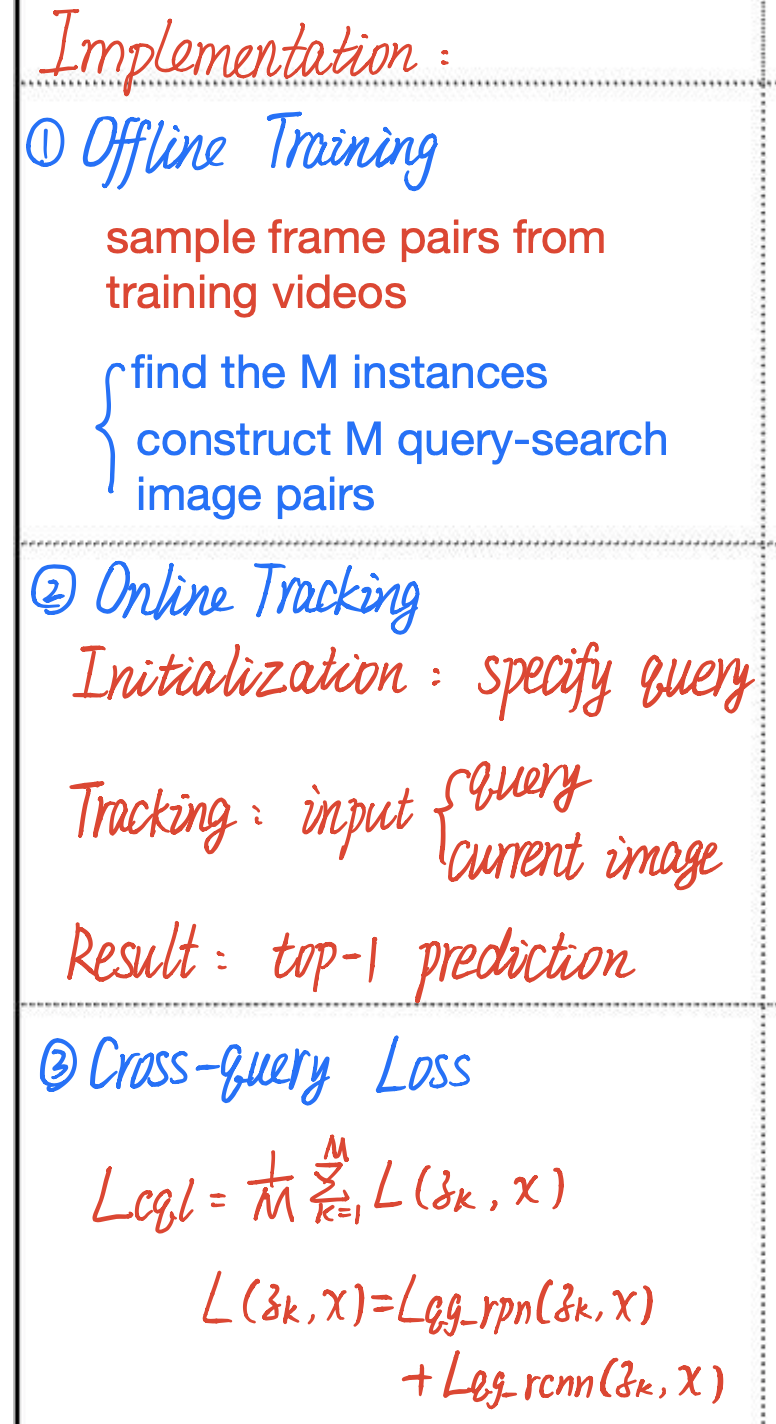
- Offline Training: it samples
frame pairsfrom training videos.- Online Tracking: it contains
initialization,trackingandresults.- Cross-query Loss: it choose
top-1 predictionas result.
Architecture
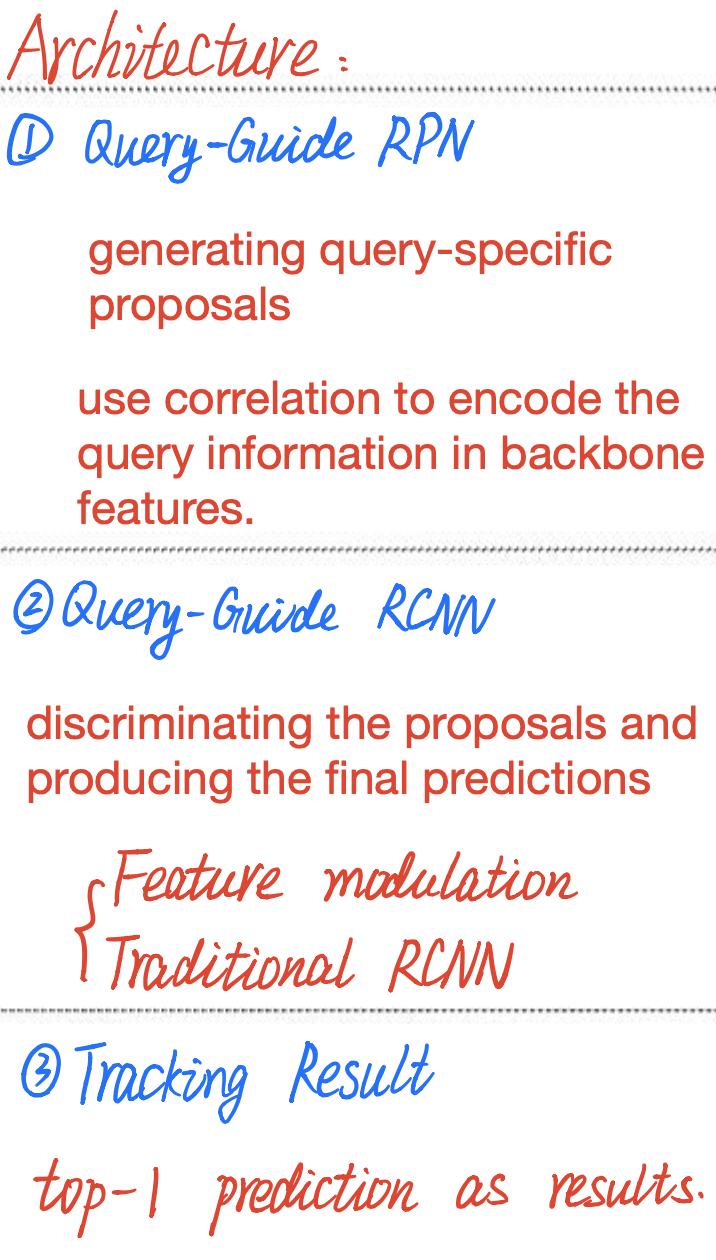
- Query-Guide RPN: it generating query-specific proposals.
- Query-Guide RCNN: it consists of feature modulation and traditional RCNN.
- Tracking Results: it takes top-1 prediction as results.
Experiments
They compared this approach GlobalTrack with state-of-the-art trackers on four large-scale tracking benchmarks as follows.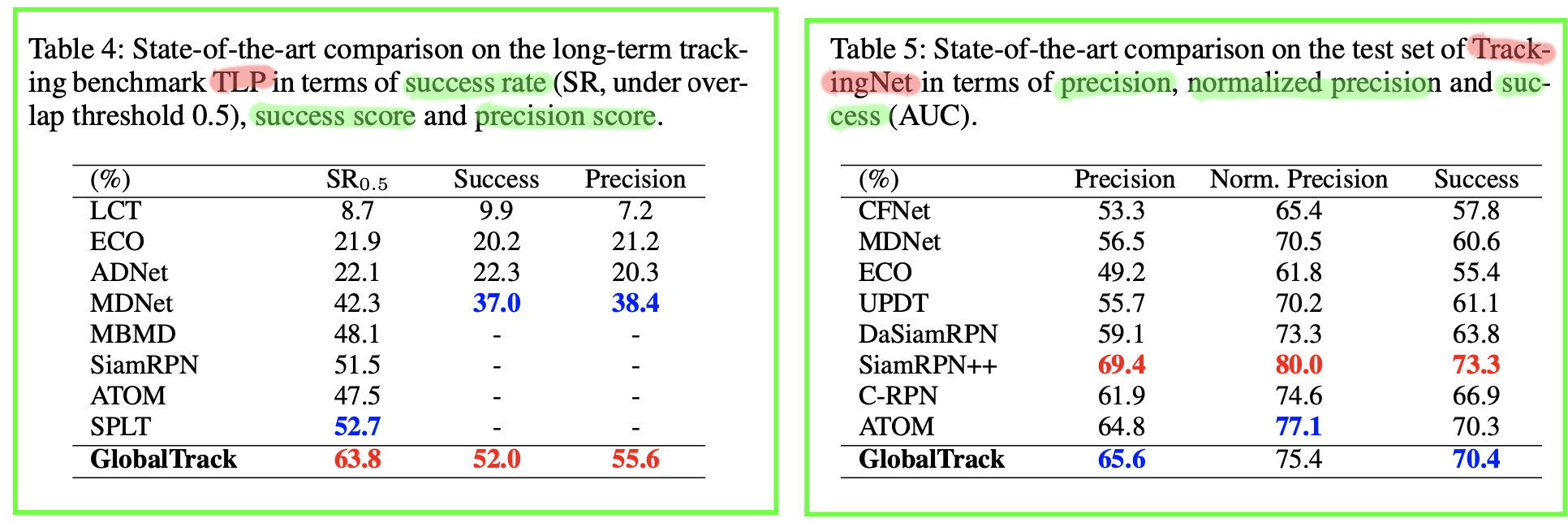
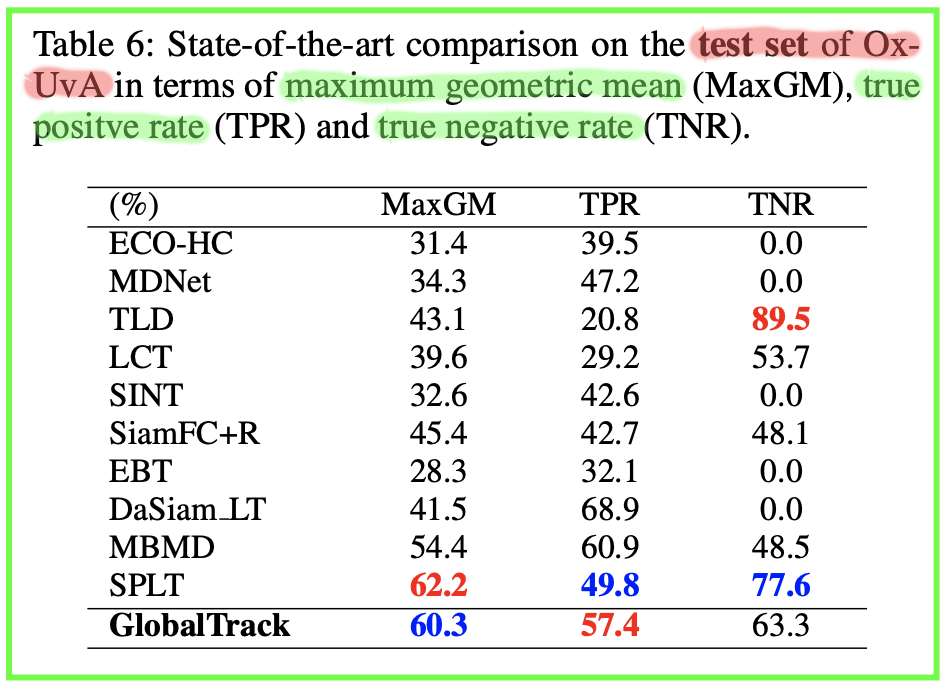
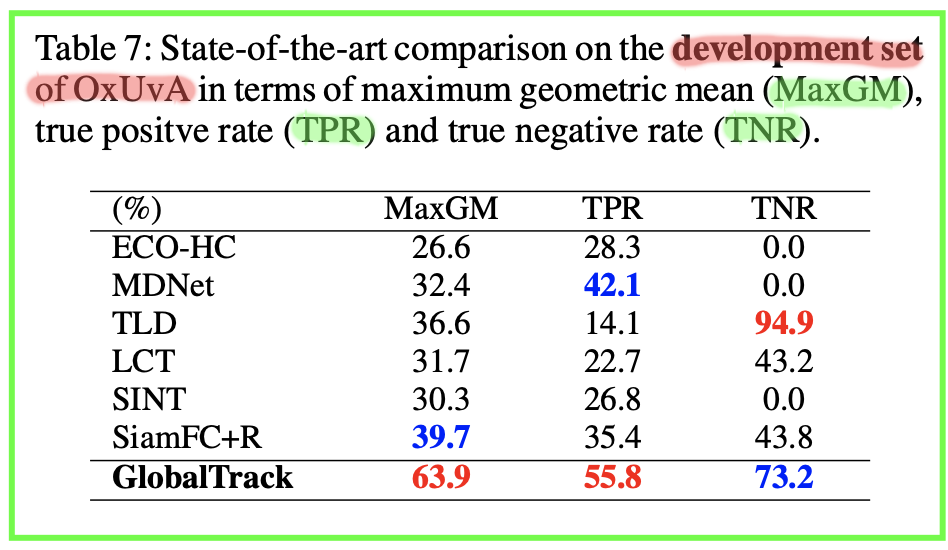
Code
The complete code can be found in [GlobalTrack][2].
Note

some free ideas that orienting future work.
References
[1] Huang, Lianghua, Xin Zhao, and Kaiqi Huang. “GlobalTrack: A Simple and Strong Baseline for Long-term Tracking.” arXiv preprint arXiv:1912.08531 (2019).
[2] GlobalTrack. https://github.com/huanglianghua/GlobalTrack
